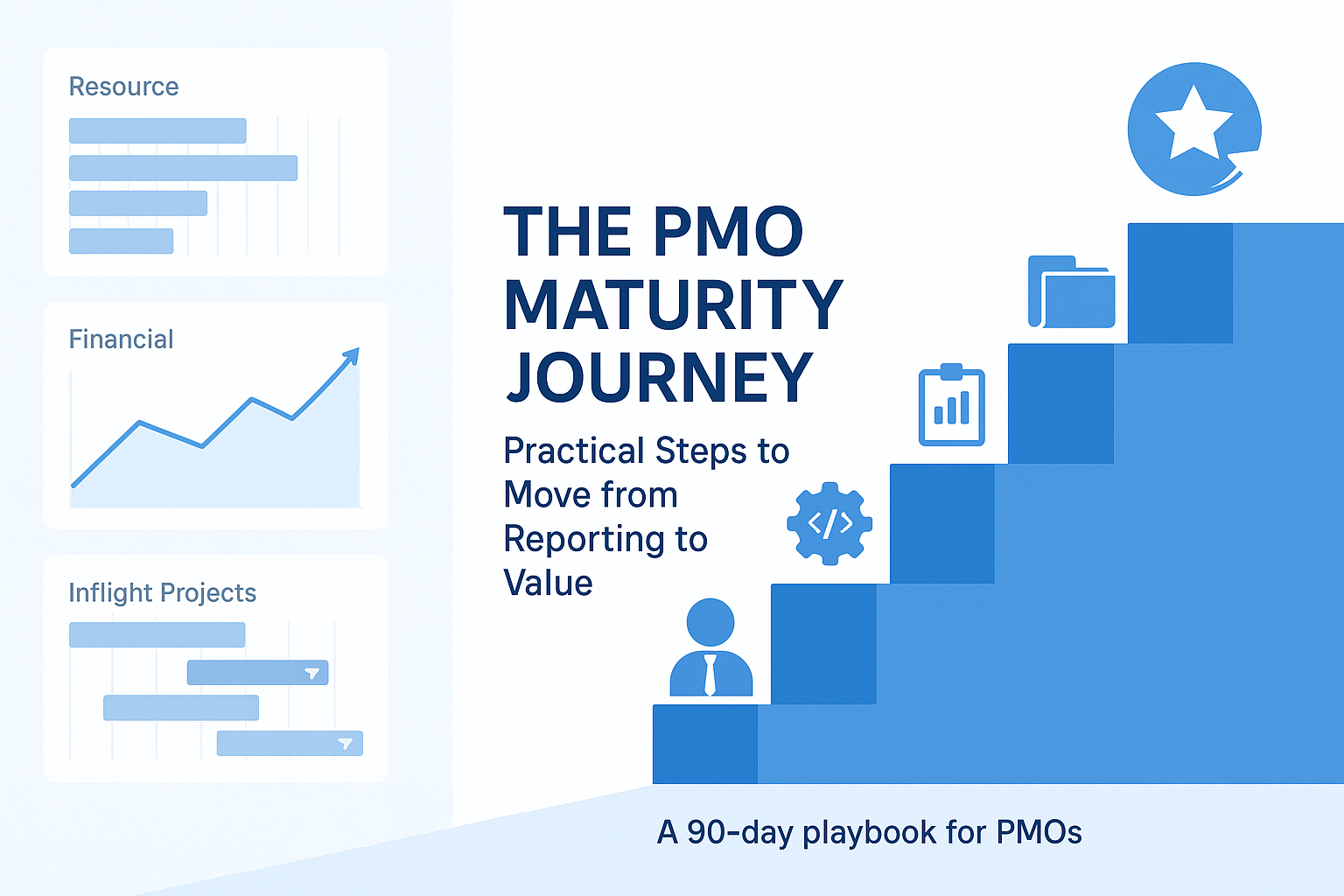10 alternatives to Planview AdaptiveWork to optimise your workflow

Most of us would probably agree that we’d like our day-to-day lives to be a bit easier, particularly when it comes to work. Despite what the recent wave of self-professed 4am-wakeup LinkedIn gurus preach, we’re always looking for ways to cut down the time we’re in, or thinking about work.
Given that, it’s little surprise that the last few years have seen an unprecedented rise in the number of project and task management platforms available on the market, each boasting various claims about how it can ‘revolutionise’ the way in which you approach your day.
Along with this growing sense that a 9-5 isn’t actually the most important aspect of our lives, the widespread adoption of a more flexible approach to working means that businesses have had to find new ways to ensure projects are still managed effectively, and to ensure teams who could be spread all over the globe know exactly what they need to do to keep things running smoothly.
So how do you begin navigating through the noise and figure out which project management services are actually any good? And more importantly which one actually meets your business needs?
One name currently out there is Planview AdaptiveWork, a comprehensive web-based collaboration platform that comes kitted with a number of handy features that range from multiple workspaces and resource management to document tracking tools.
However, if for whatever reason you’re on the hunt for an alternative to Planview AdaptiveWork, we’ve picked out a number of worthy solutions that you might want to consider, along with delving into a few of the pros and cons of each.
Fluid
Fluid manages to pack all the advanced tools and features usually reserved for high-end enterprise-level software into an all-in-one solution that’s as easy to use as the best consumer-facing software, giving you the best of both worlds.
Through a customisable all-in-one project management suite, users are presented with a real-time overview of any and all important variables from financial forecasting and potential bottlenecks to in-built agenda templates that ensure meetings are optimised and deliver instantly actionable next steps.
Microsoft Project
Undoubtedly one of the most recognisable names in any conversation surrounding tech solutions, Microsoft Project is certainly one of the most established platforms in project management, and with that comes a valuable element of reliability and impressive customer care.
However, while the platform is definitely robust, the learning curve can run the risk of being quite steep for first-time users. The list of integrations is also fairly limited when you begin looking outside of Microsoft products, and no in-app collaboration essentially means users need to use Microsoft Teams for that side of things.
ClickUp
ClickUp is another heavy-hitting piece of project management kit, and it is generally capable of handling most of the complex workflows you can throw at it.
To enable this, though, a lot of the usability is sacrificed to make room for all of these advanced features, many of which make the interface feel a little overwhelming, especially for those who haven’t used anything similar before.
Monday.com
For something a bit more focused on user-friendliness, Monday.com has cemented itself as a popular choice when it comes to workflow management tools. It features decent time-tracking features, simple communication tools and a generally intuitive dashboard.
As is usually the case with these types of consumer-facing solutions, Monday.com is best suited to more basic task management, and for those who want anything beyond that, the pricing structure can quickly mount up for the enterprise-level packages.
Workfront
Workfront is a cloud-based work management platform that manages to pack in a number of valuable features that are usually reserved for more premium offerings, and does so at a competitive price point.
With that being said, it does again come with a steep learning curve if you want to actually get your money’s worth out of these tools and the overall UX leaves a fair amount to be desired.
Zoho Projects
Zoho’s user-friendly interface makes it another solid Planview alternative for those who are prioritising ease of use in their search. The reasonable price points are also a big tick in the pro column here/
One of the more common complaints from Zoho users refers to how long finding support can take when the platform runs into snags, and how larger teams may find that it struggles to cope with high volumes of users.
Jira
Initially launched by Atlassian in 2002, Jira was first created as an issue-tracking solution for software developers. Since then, its effectiveness in Agile work management has seen it go on to be adopted for more widespread task and work tracking.
Jira’s roots in issue-tracking means it isn’t fully optimised when it comes to project management features, and it still misses pretty standard capabilities such as a built-in communication tool.
Runn
Runn is a real-time resource management platform that comes equipped with powerful forecasting features. Its drag-and-drop scheduling makes it easy to pick up and real-time updates make it easy to see where things are up to.
To get the most out of Runn, the platform relies quite heavily on the user inputting a decent amount of data, something which can be a little frustrating if your team isn’t used to working this way, or you want a more immediate out-of-the-box solution.
Trello
Trello is a popular project management tool that relies on drag-and-drop Kanban boards as a way of monitoring task progress. Its intuitive setup often makes it a good first foray into workflow management tools for many, and its simplicity has made it popular for anyone after a simple solution for straightforward projects.
Beyond this, advanced features don’t really exist, so don’t expect to find anything like time tracking, reporting, budget management, meeting tools or other important add-ons for more in-depth project management.
Freedcamp
Freedcamp’s open-source project management suite features a very useful free plan that is open to an unlimited number of users, making it a tempting one to try for personal use or small businesses working on a tight budget.
With that being said, while there is a welcome amount of features on the free plan, there are few native integrations and finding your way around the interface can feel somewhat clunky. Customer support when working on the free plan can also be quite a long-winded process.
What is the best Planview AdaptiveWork alternative?
With a combination of advanced collaboration and task management features, meeting optimisation, in-depth reporting, accurate financial forecasting and a dashboard that doesn’t destroy your soul every time you use it, Fluid can help project managers save up to a day a week.
In a relatively unsurprising revelation, we back Fluid as the perfect Planview alternative, but if you’re not yet convinced, book a demo or start your free trial here.
See how Fluid enables your business to deliver the right strategic change













